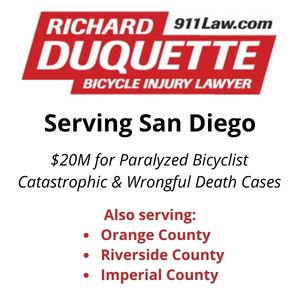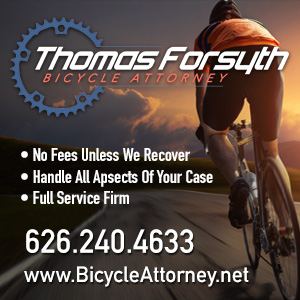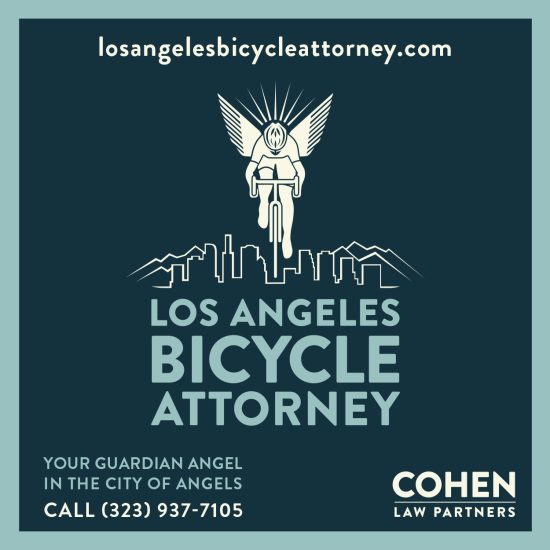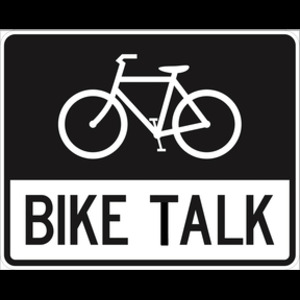
Sad news from San Diego.
CABO President Jim Baross writes that John Forester, author of Effective Cycling and the father of America’s vehicular cycling movement, passed away last week.
Reported to me today by his son Jeff Forester
John died April 14, 2020 at 90 years of age
He was Born Oct. 1929
I have known John primarily related to bicycling and CABO. Some things I know about him off the cuff:
Author of Effective Cycling now in a 7th edition, former League of American Bicyclists Board member (was he board chair at one time?), instrumental in the formation of CABO, certainly the Father of the concepts and trainings of vehicular cycling, an early outspoken advocate for the rights of people to use bicycles on public roads, etc. etc.
Whatever your opinion of vehicular cycling, Forester was hugely influential in the ’70s and ’80s, and throughout the past 50 years. Both in affirming the place of bicyclists on our streets, and blocking the growth of separated bikeways.
He fought for what he believed right up to the end, long after most modern advocates and planners had left his philosophies behind.
But in his day, his work was a revelation, creating the framework most road cyclists employed through the last decades of the past century.
Myself included.
Thanks to Richard Masoner for the heads-up.
Cover image from MIT Press.
………
Let’s talk about a great opinion piece from today’s LA Times.
Senior digital editor Matthew Fleischer writes that the coronavirus shutdowns are making it clear just how toxic car culture really is.
The coronavirus is making it abundantly clear that cars are their own kind of plague. And, in many ways, our lives are better when we don’t have to use them.
Some city leaders have come to this realization and are refusing to allow their automotive status quos to return after the lockdowns end. In Milan, Italy — one of the hardest-hit cities in the world by coronavirus — planners have already begun preparations to permanently transform 22 miles of streets for non-automobile use after witnessing reductions in air pollution of up to 70% during lockdowns.
Then there’s this.
Frankly, the idea that we can transport ourselves sustainably en masse in toxic 4,000-pound battering rams is just as delusional, entitled and self-destructive as the “liberate” protestors who are demanding a premature end to coronavirus-related stay-at-home orders…
There is no herd immunity from the damage caused by millions of personal automobiles roaming the streets at all hours.
Seriously, this will probably be the most insightful thing you read today. If not, it’s still a damn good way to spend the next few minutes.
Let’s hope Mayor Garcetti reads it.
Because he can let coronavirus derail his ambitious plans to reimagine our streets as part of an LA Green New Deal.
Or he can use this as a rare opportunity to actually make it happen.
………
Closing or narrowing streets for cars in response to Covid-19 continues to make news here in LA, across the US and around the world.
Los Angeles political advocacy group Streets For All has forged a powerful coalition of LA-area groups to lead the call to keep Angelenos physically and mentally healthy during the COVID-19 crisis.
And expressed that call in a strongly worded letter to leaders of the City of Angels.
The road space in Los Angeles is now dramatically overbuilt for the current vehicle traffic volume, causing vehicles to travel at dangerous speeds – average speeds are up 30% on our wide open roads according to LADOT. At the same time, the average width of our sidewalks is 4.4’, too narrow to allow people to pass each other while maintaining 6’ of distance. As a result, people are forced to be in close proximity with each other, risking proliferating the virus or walking, running, scooting, or biking in the street next to speeding cars. This isn’t just a street safety issue, but a public health issue as well…
While the top priority is limiting COVID-19 spread and saving lives and livelihoods, there must be a long term plan to sustain the mental and physical well being of Angelenos. Isolation and inactivity can lead to increases in chronic health conditions like heart disease and obesity and pose other mental and physical health risks that we may pay for as a society for years to come.
Therefore, for the critical reasons of equity, mental health, safety, and the physical well-being of Angelenos, we ask you to authorize the creation of an emergency people street network – using cones or other temporary infrastructure – to create additional sidewalk and open space for people to walk, run, scoot, and bike in, while maintaining 6’ of distancing. On neighborhood streets, this could be as simple as a few cones and a “slow down” sign taking up some of the street, calming traffic but still allowing local and emergency vehicle access. On major arteries, this could be redistributing a parking lane and/or single vehicle traffic lane on each side of the street, while taking care not to interfere with bus stops. These treatments may also advance the Mayor’s goals under L.A.’s Green New Deal to “Activate Streets” and “Prioritize Land Use and the Right-of-Way” in Executive Directive 25. All of this can be accomplished inexpensively and without the need of distracting our police or fire departments with enforcement during this critical time.
It’s worth taking the time to read the full letter. And voice your own support.
Meanwhile, KCRW’s Steve Chiotakis talks with Curbed’s Alissa Walker about closing some roads to cars so people have more space to walk, run or bike.
Salt Lake City joins the growing movement to convert streets to bike and pedestrian use.
Berlin is the latest world capital to carve out more space on the streets for active transportation in the wake of the coronavirus shutdown.
And Paris trumps everyone by readying the equivalent of 400 miles of permanent and temporary bikeways for use when the city reawakens.
………
No surprise here.
The Governors Highway Safety Association says speeding is up around the country on streets emptied by the coronavirus crisis, which means crashes are more serious, too.
Case in point, the CHP reports that tickets for speeding in excess of 100 mph have jumped 87% over the past month.
Which can either mean that more drivers are speeding. Or that more are just getting caught.
Or maybe both.
………
New York City’s mayor demonstrates that he’s never been to California by bizarrely insisting that California drivers are so courteous, they stop on every block — even when they don’t have to.
https://twitter.com/laura_nelson/status/1252979892846645248?ref_src=twsrc%5Etfw%7Ctwcamp%5Etweetembed%7Ctwterm%5E1252979892846645248&ref_url=https%3A%2F%2Fnyc.streetsblog.org%2F2020%2F04%2F22%2Fstill-defiant-now-mayor-de-blasio-wrongly-claims-california-can-have-open-space-because-its-drivers-are-better%2F
………
The LACBC and Sunset For All are teaming up tomorrow to show that bikes mean business.
Help support local business! LACBC is partnering with @SunsetForAll to show that #bikesmeanbusiness. On Friday April 24, order your lunch or dinner from #StickyRiceLA: https://t.co/yTFxUwMbPy. Mention #Sunset4All and #protectedbikelanes when you order. Share a pic of your meal! pic.twitter.com/aOHKGMXTrd
— BikeLA (@heybikela) April 22, 2020
………
The war on cars may be a myth, but the war on bikes goes on.
A “furious” English man demands that bike riders be banned from a multi-use path along the coast for the alleged crime of failing to maintain social distancing.
………
Local
Khloé Kardashian’s two-year old daughter is one of us.
State
A San Diego columnist questions whether it’s time to reopen parts of the city, arguing that the fitness of residents helped it avoid the worst of the coronavirus.
I want to be like them when I grow up. A group of San Diego men up to 80 years old are still taking long rides along the SoCal coast. And the coast of Normandy.
After losing his job in a San Francisco restaurant, a Venezuelan chef turns to his native cuisine, and starts a new business delivering homemade arepas by bike. Which is literally what he named it.
Once again, a Bay Area bicyclist posts a nearly one-hour video of a ride through Oakland and San Leandro. And once again, an Oakland News blogger freaks out over his scofflaw behavior.
They get it. A pair of Sacramento mayors agree this is no time to back down on climate change, coronavirus or not.
National
PeopleForBikes aims to support bike shops by encouraging responsible riding during the Covid-19 crisis, along with virtual cycling.
How to turn your kid into a mini mountain bike shredder.
A pair of Idaho bike commuters are credited with helping the environment by trading gas pedals for bike pedals; one was inspired to get on her bike by attending CicLAvia when she was a student at USC.
Evidently, Texas trail users don’t like being told which way to go.
Wisconsin wrenches are raising old bikes from the dead at a record pace.
Security cam video shows a St. Louis hit-and-run driver plowing into a bike rider, hurling him into the air before flooring it and fleeing the scene; despite the head-on crash, the victim only suffered minor injuries. This video is just as disturbing as it sounds, so be sure you really want to see it before you click on the link.
Three friends from Maine end up driving 2,000 miles home when their fundraising cross-country bike trip ground to a halt in Texas after the coronavirus shut down much of the country.
After an MIT researcher blamed New York’s transit system for spreading Covid-19, a researcher from George Mason University reminds him that correlation isn’t causation, noting that restaurants and bikeshare showed the same curve — and points the finger for spreading the disease at motor vehicle use, instead.
Streetsblog says the empty streets have turned New York’s Third Ave into a dangerous speedway.
A writer for Rolling Stone takes a desolate and desultory ride through the city, feeling anger towards people flaunting social distancing rules and mourning places that may not return.
A Philly radio station says bicycle couriers have had to change their strategies to avoid spreading Covid-19. Or getting exposed to it.
International
She gets it. A writer for Forbes says our planet needs cities to prioritize people over cars, and this is the perfect time to do it.
The Pinkbike Podcast discusses why every new bike now seems to be a trail bike.
Cycling News says you can save time and money by learning to fit your own bike chain. Meanwhile, Bike Radar offers a beginner’s guide to road bike shifting.
Bike-riding British Columbia mounties stop a man for riding without a helmet, which is against the law there. And end up busting him for stealing the bike he was riding.
Dutch model Lilly Becker is one of us, too, going for a socially distant ride through London’s Wimbledon neighborhood.
Tragic news from the Netherlands, where an 18-year old man was stabbed to death in an apparent random attack while riding his bike; police arrested a “known troublemaker” immigrant with mental health problems.
Competitive Cycling
VeloNews talks with five-time Tour de France winner Bernard Hinault about his 50-mile solo breakaway through a brutal snowstorm to win the 1980 Liège-Bastogne-Liège
Finally…
Who needs a BMX track when you’ve got a Tribeca apartment with an awesome view of the waterfront? Why move over when you’ve got a six-foot social distancing stick?
And no, bikes aren’t “the new toilet paper.”
You can actually get a bicycle.
………
Be safe, and stay healthy. And wear a mask, already.






This doesn’t seem like a very good photo for the cover of Forester’s book. The cyclist is nearly on the broken white line, setting herself up to be undertaken by a driver who might leave inches to spare. Is she too scared to take the lane, expecting to honked at? She is also too close to the car to her left and probably in the driver’s blind spot. Too close to have enough time to react to a sudden and un-indicated lane change. If you were a vehicular cyclist wouldn’t you want to avoid these situations? The photo – instead of illustrating strict, ideologically correct vehicular cycling – seems to represent how it plays out in the real world.